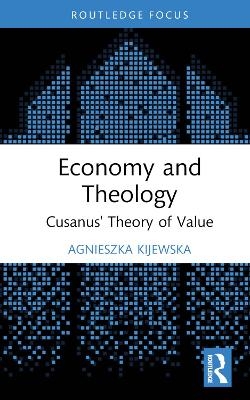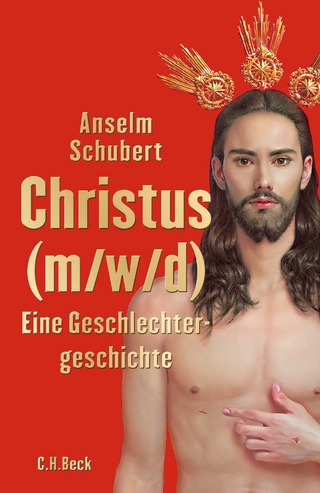
Economy and Theology
Cusanus’s Theory of Value
Seiten
2024
Routledge (Verlag)
978-1-032-31515-7 (ISBN)
Routledge (Verlag)
978-1-032-31515-7 (ISBN)
Economy and Theology: Cusanus' Theory of Value, a study from the field of the history of philosophy, responds to the present-day interest in what is referred to as economic theology.
Economy and Theology: Cusanus's Theory of Value, a study from the field of the history of philosophy, responds to the present-day interest in what is referred to as economic theology. This study aims to show that value (valor), one of the fundamental concepts of contemporary philosophy and economics, has its genealogy in the thought of Nicholas of Cusa. Starting from the economic context (the concept of price/pretium), Cusanus proposes the theory of value that, on the one hand, is objectively rooted in the Divine act of creation (God as the Minter) and, on the other hand, requires reading by human beings (human mind as a banker). While this theory appears in Cusanus’s late work The Bowling-Game, it is underpinned by his theory of knowledge, theory of human beings and human cognition against the background of his vision of the universe. Thus, the aim of the book is to try to answer the question about the role and tasks of human beings as a principal player in economic and social game. This description of human position emerges from the creative tension between human philosophical and theological reflection and certain economic solutions.
Economy and Theology: Cusanus's Theory of Value, a study from the field of the history of philosophy, responds to the present-day interest in what is referred to as economic theology. This study aims to show that value (valor), one of the fundamental concepts of contemporary philosophy and economics, has its genealogy in the thought of Nicholas of Cusa. Starting from the economic context (the concept of price/pretium), Cusanus proposes the theory of value that, on the one hand, is objectively rooted in the Divine act of creation (God as the Minter) and, on the other hand, requires reading by human beings (human mind as a banker). While this theory appears in Cusanus’s late work The Bowling-Game, it is underpinned by his theory of knowledge, theory of human beings and human cognition against the background of his vision of the universe. Thus, the aim of the book is to try to answer the question about the role and tasks of human beings as a principal player in economic and social game. This description of human position emerges from the creative tension between human philosophical and theological reflection and certain economic solutions.
Agnieszka Kijewska is tenure professor at the Chair of History of Ancient and Medieval Philosophy in Philosophical Faculty, John Paul II Lublin Catholic University, Poland.
1. Introductory Circles of History of Philosophy and Economic Theology 2. The Circle of Cusanus' Life 3. The Circle of Cusanus’ Literary Activity 4. The Circle of Cusanus’ Reformatory Activity 5. The Circles of the Game 6. Two More Circles in the Game: the Circles of the Creator and of the Creation 7. The Circle of Values 8. The Circle of Rational Player and Efficient Banker 9. The Last Circle of the Game of Bowls and the Game of Human Life: the Circle of Fulfilment 10. Concluding Remarks
| Erscheinungsdatum | 03.05.2024 |
|---|---|
| Reihe/Serie | Economics and Humanities |
| Verlagsort | London |
| Sprache | englisch |
| Maße | 138 x 216 mm |
| Gewicht | 453 g |
| Themenwelt | Geisteswissenschaften ► Philosophie |
| Religion / Theologie ► Christentum ► Kirchengeschichte | |
| ISBN-10 | 1-032-31515-6 / 1032315156 |
| ISBN-13 | 978-1-032-31515-7 / 9781032315157 |
| Zustand | Neuware |
| Haben Sie eine Frage zum Produkt? |
Mehr entdecken
aus dem Bereich
aus dem Bereich
eine Geschichte der christlichen Kunst
Buch | Hardcover (2024)
C.H.Beck (Verlag)
32,00 €
von Athanasius bis Gregor dem Großen
Buch | Softcover (2024)
C.H.Beck (Verlag)
12,00 €


